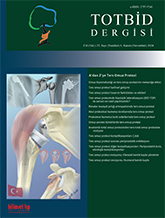
Reverse shoulder prosthesis, was initially developed as a salvage procedure for rotator cuff tear arthropathy, and has become a widely used treatment for various shoulder pathologies. With the expanded indications, the range of complications associated with reverse shoulder prosthesis, has also diversified. The most common complications include periprosthetic fractures, infections, instability, neurological injuries, and glenoid loosening. The incidence of complications ranges from 3% to 24% in primary procedures, while revision surgeries may have complication rates as high as 50%. Neurological complications and periprosthetic fractures significantly impact surgical outcomes and necessitate careful management. Advances in surgical techniques and prosthetic design continue to aim reducing these complications and improving patient outcomes.